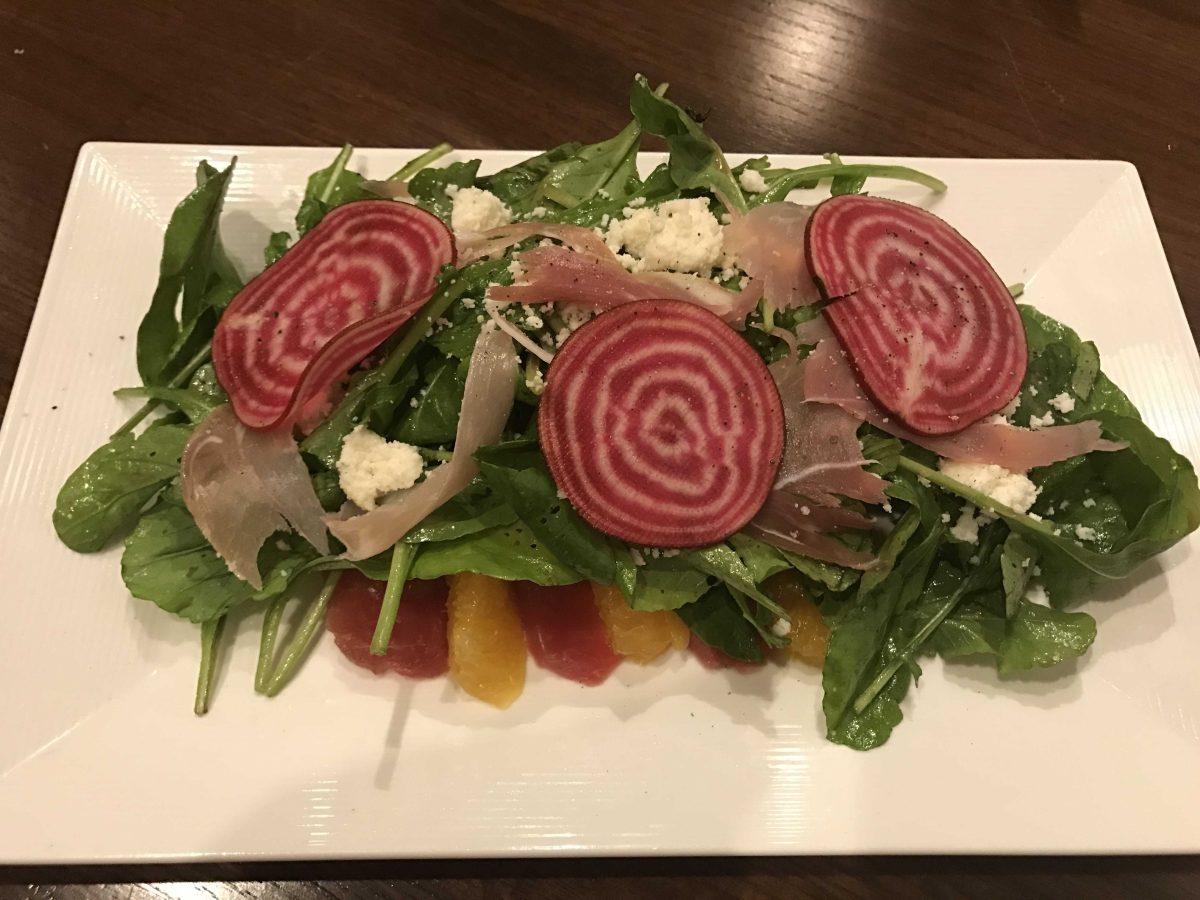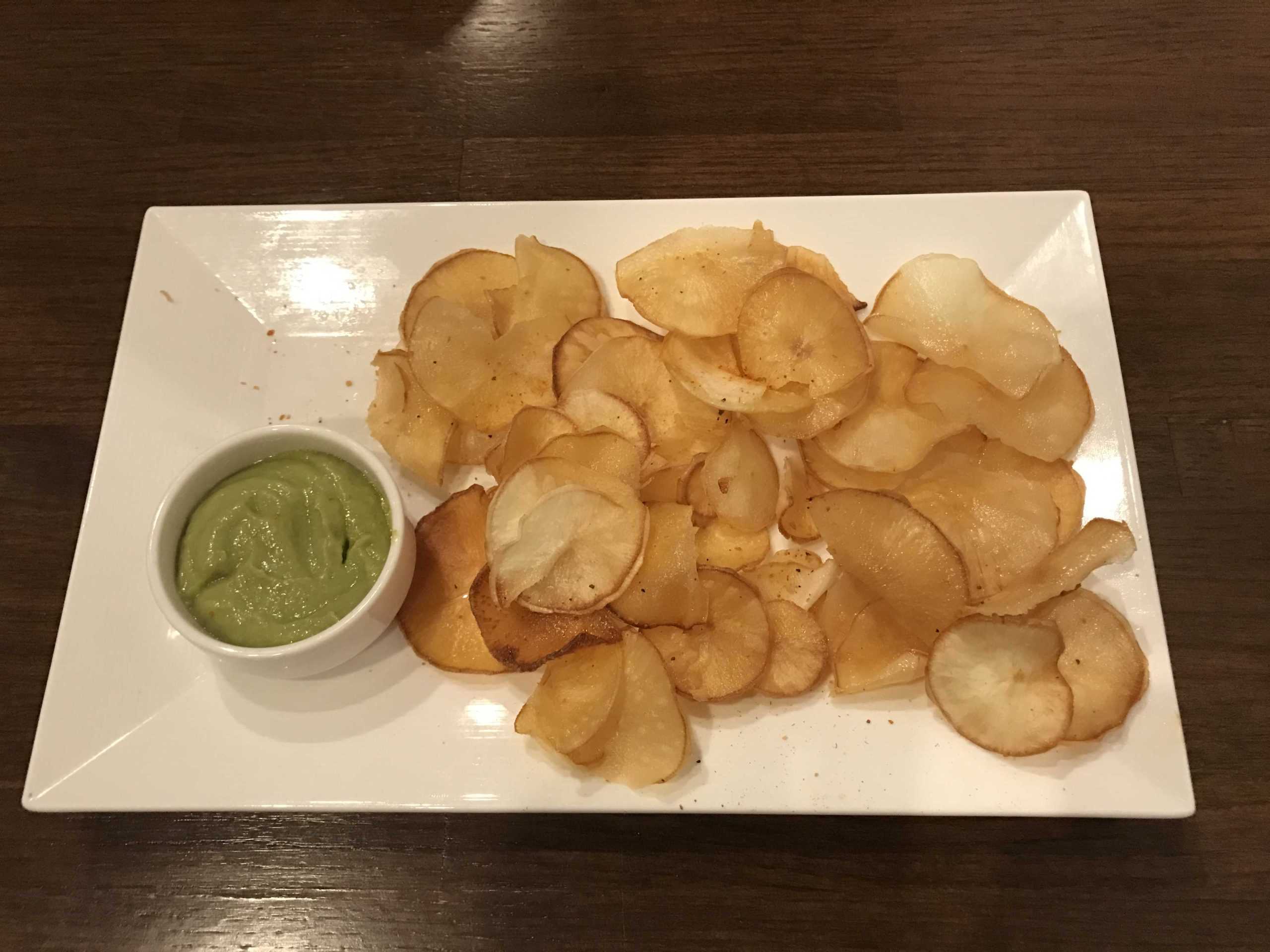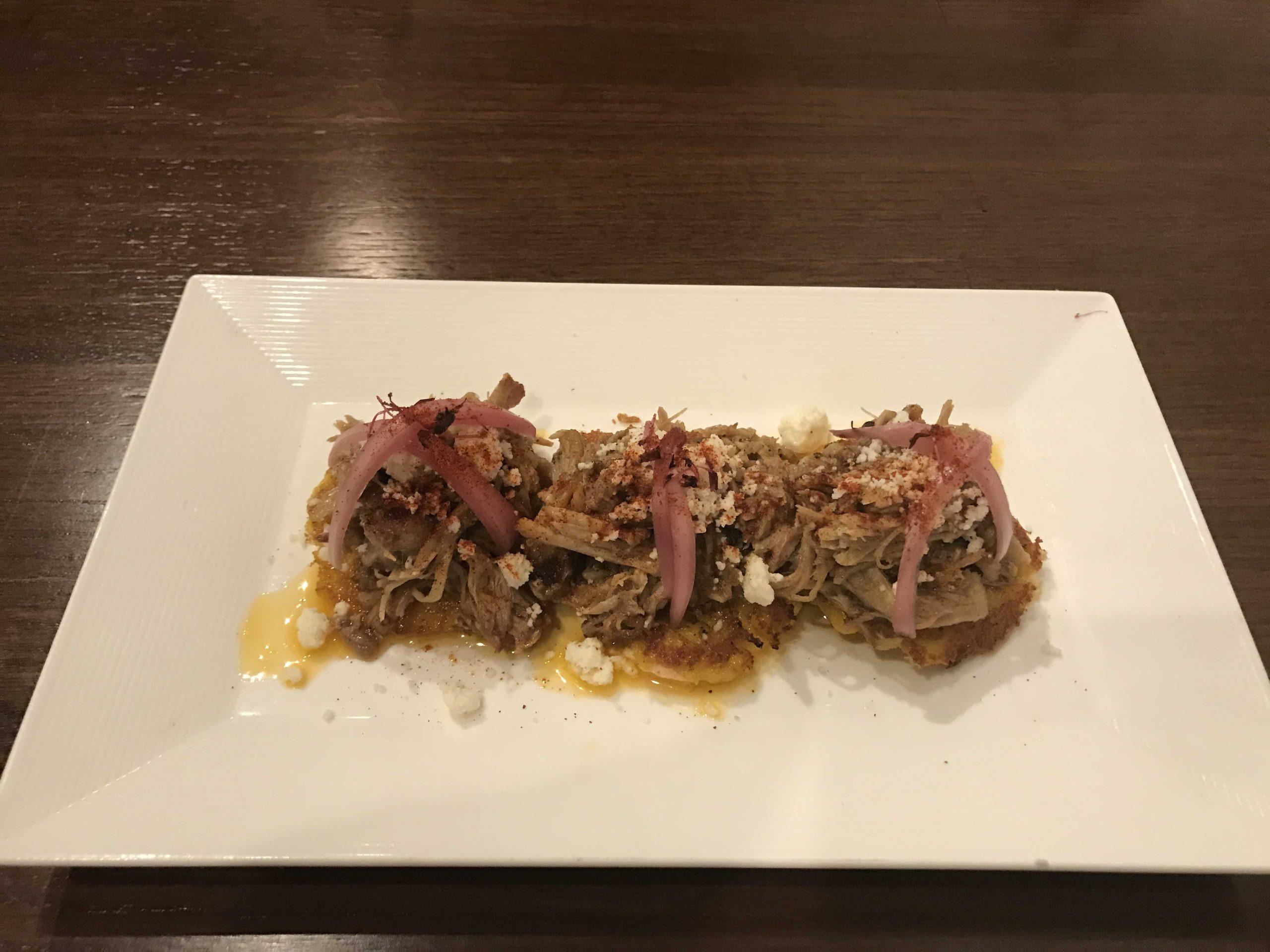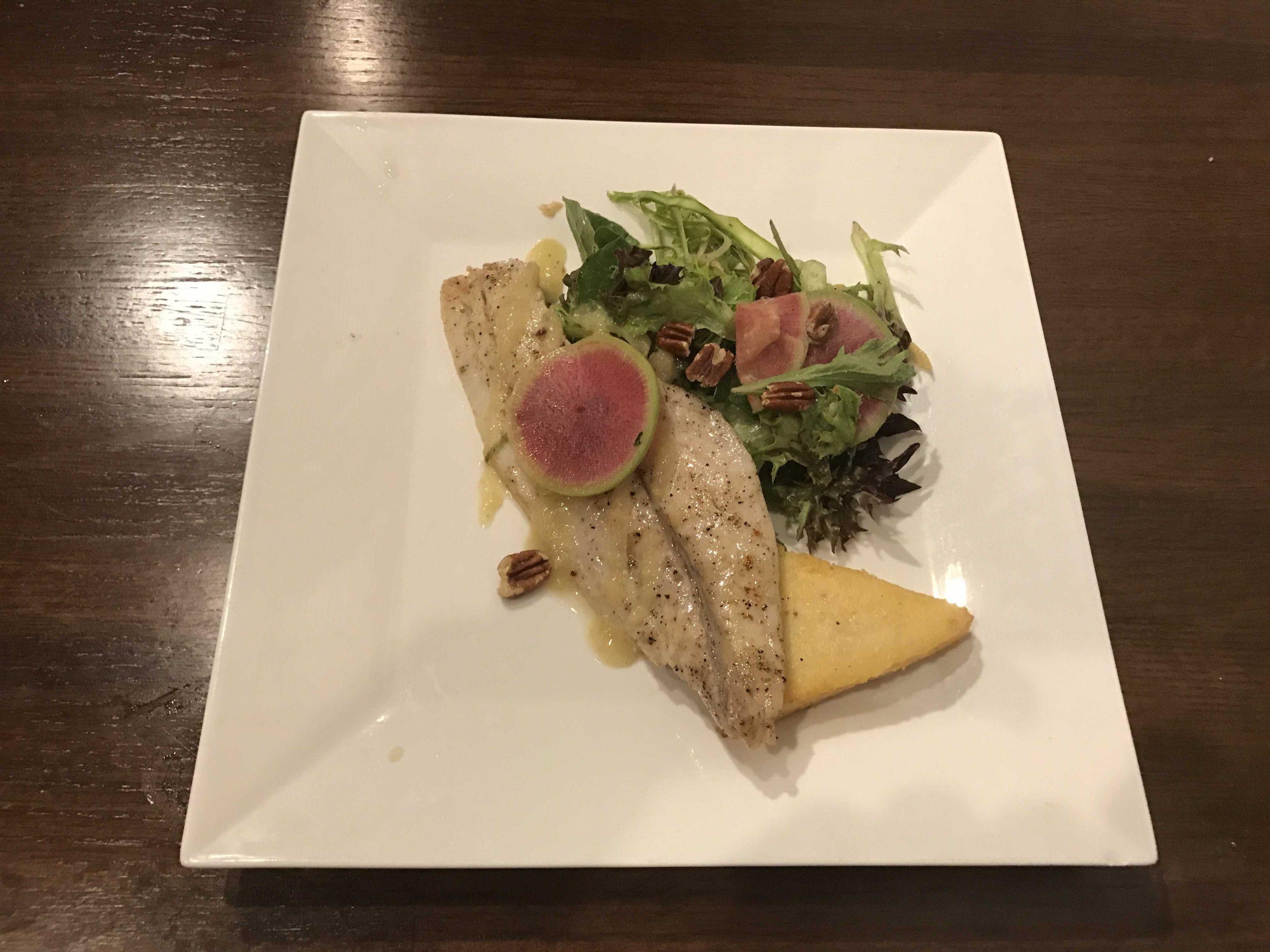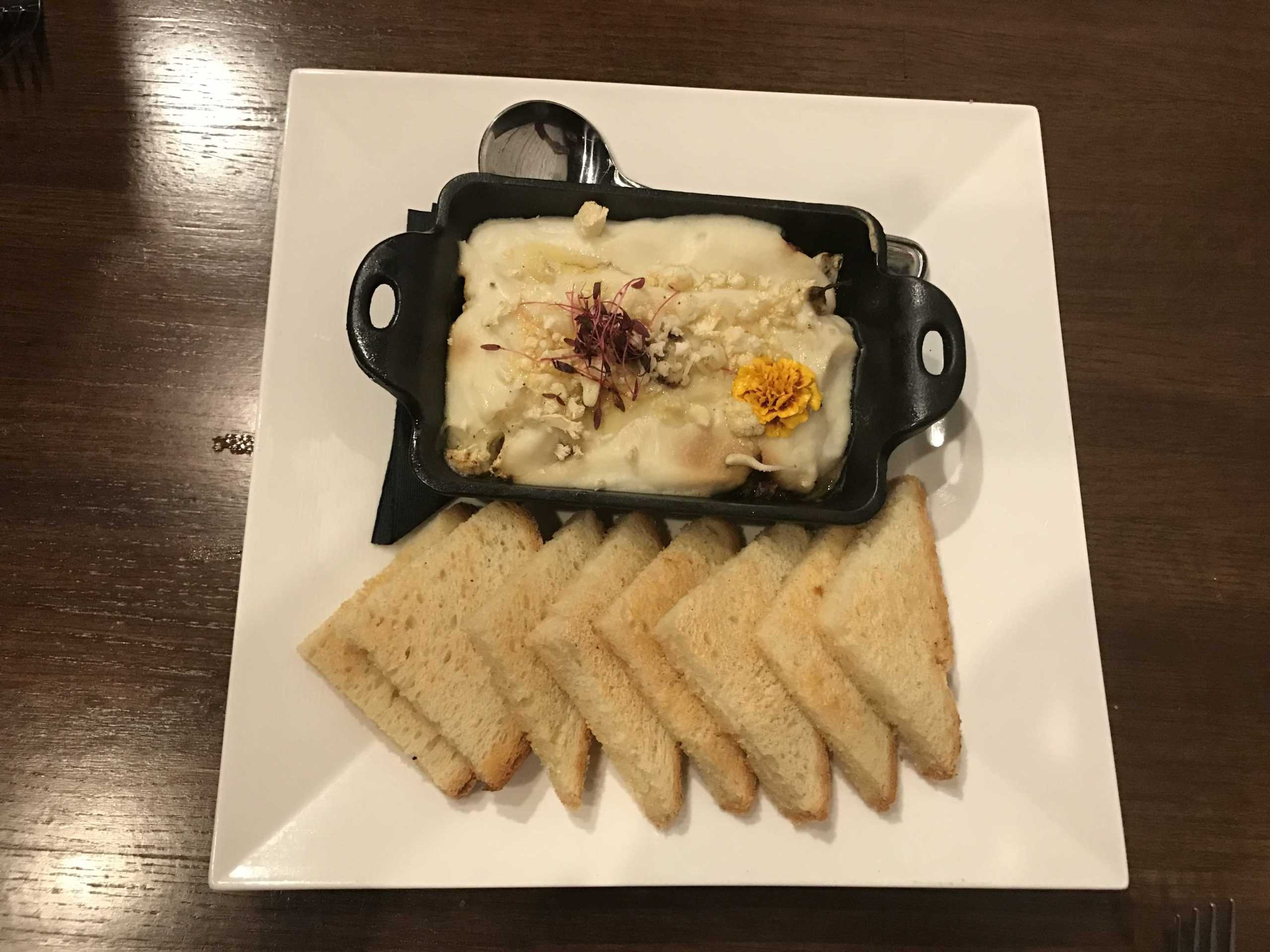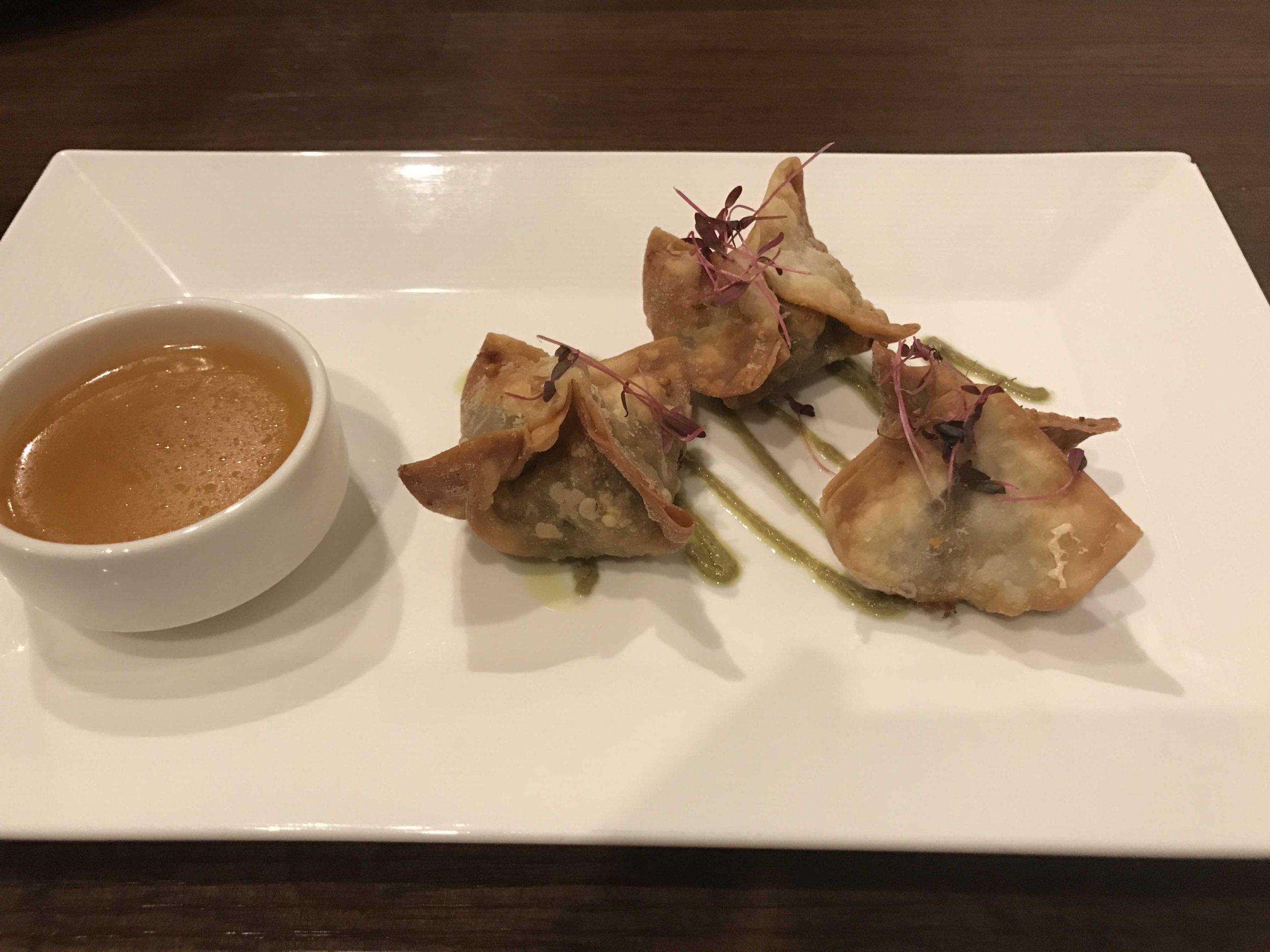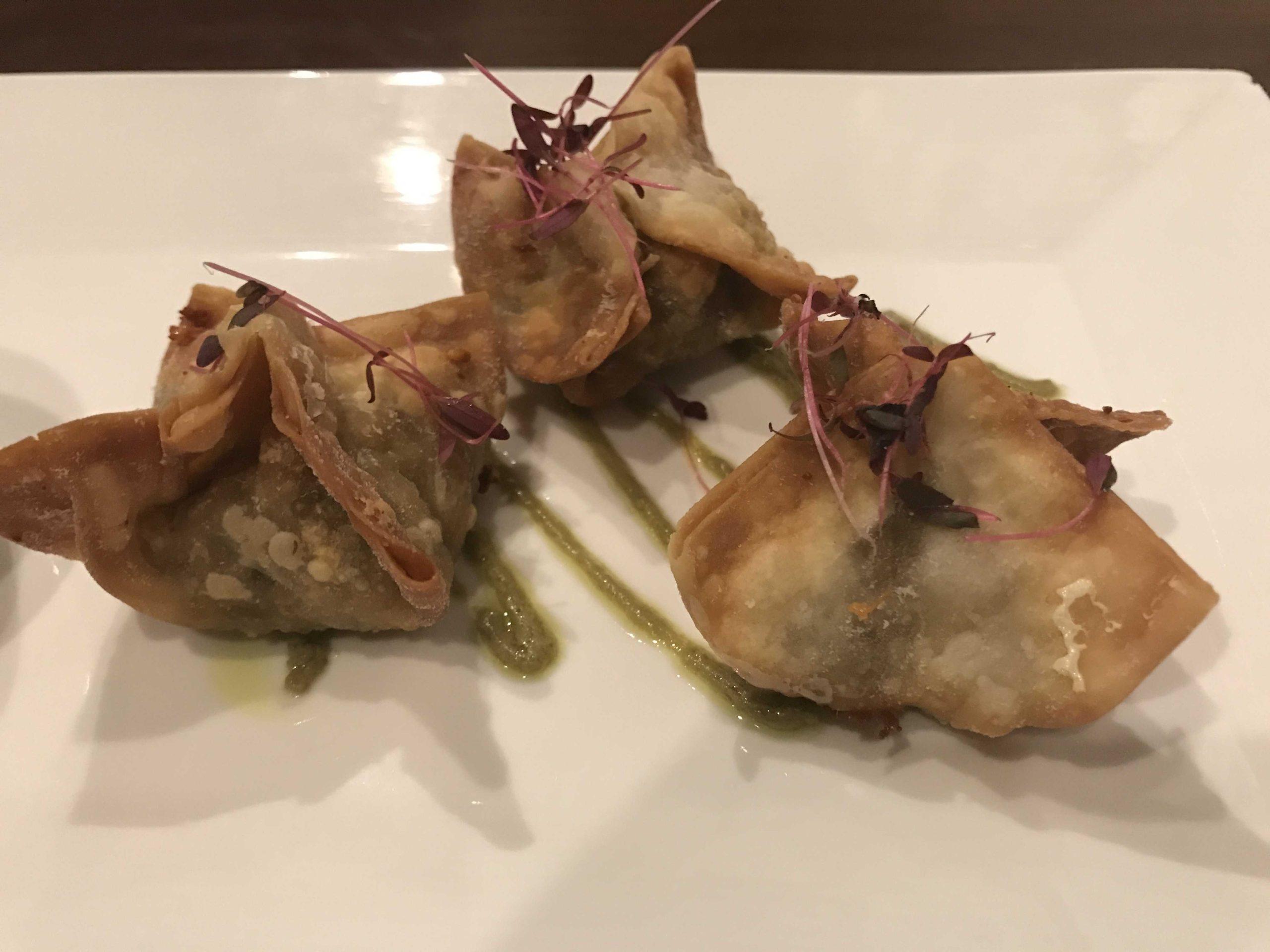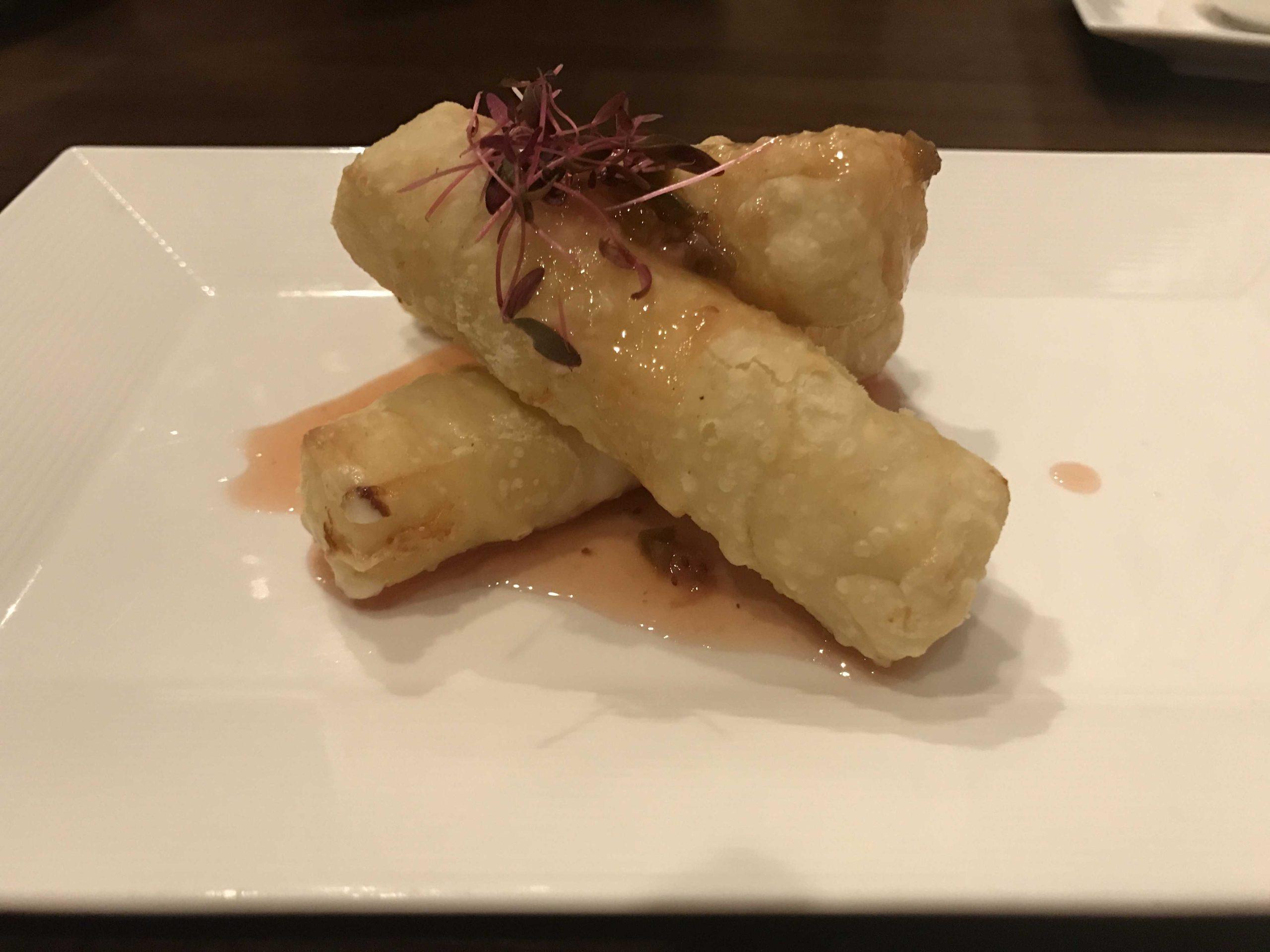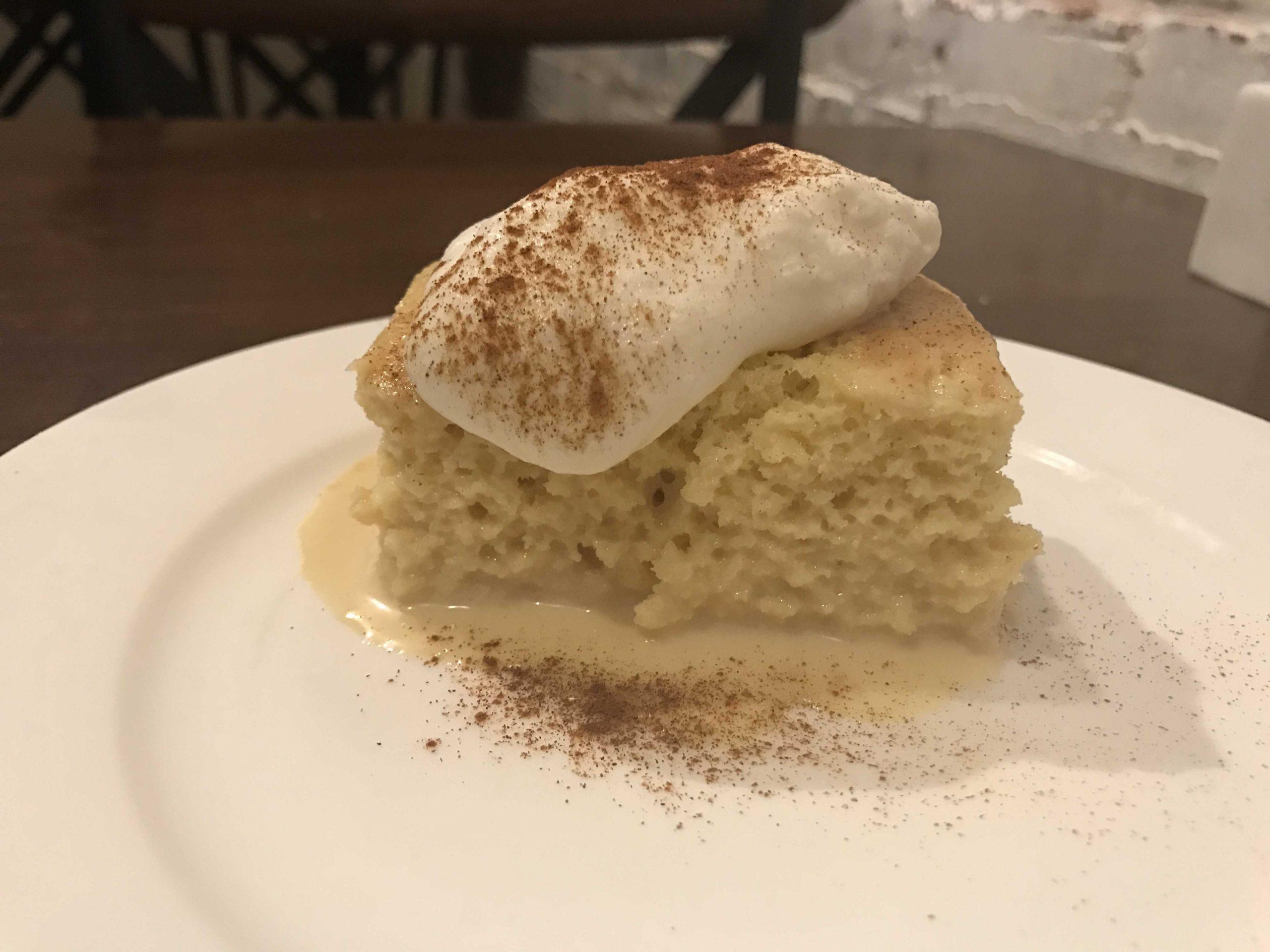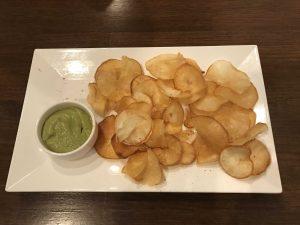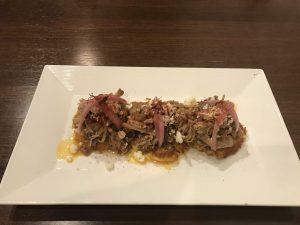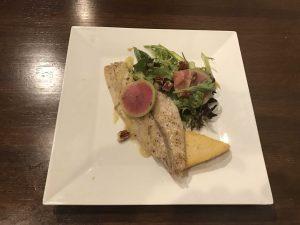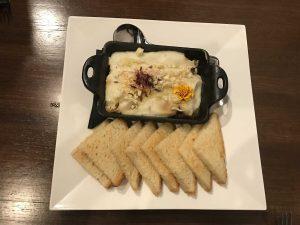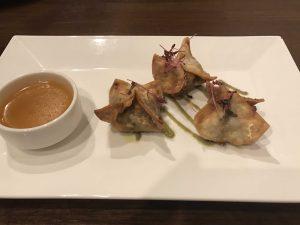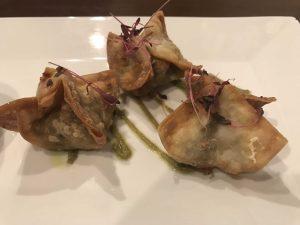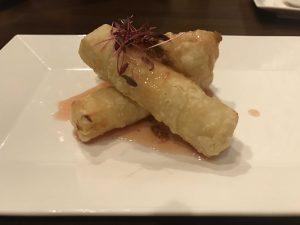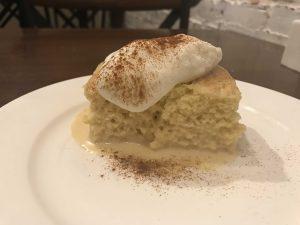Baton Rouge gains worldly flavors in a rustic farm-to-table setting with Cocha, a welcomed addition to the downtown culinary scene.
Opened late December, Cocha utilizes local ingredients made from scratch to create a fresh, globally-infused dining experience.
Upon entrance, the restaurant feels like it could be found in New Orleans or some other food-savvy metropolitan city. The exposed brick, dark wood tables and eclectic art — including two large pieces made from Mardi Gras beads — contribute to the refined southern feel of the restaurant.
Smooth, inoffensive low-toned house music plays on the speakers, a hip touch to the sophisticated environment. The tables are a comfortable distance away from each other, perfect for conversation, and the service is attentive without being overbearing.
The menu is divided into bites, shared plates and larger offerings, ideal for a group dining experience. I encourage sharing everything because the breadth of flavors and tastes makes for an astounding culinary adventure.
The bites are small enough for one person alone or perfect for two or three diners to share.
The yuca chips are expertly fried and served with a side of avocado salsa. This dish was an appropriate starter, representative of the global — particularly Hispanic — flair most of the dishes have. These chips taste similar to potato chips but have a much higher quality, and the avocado salsa is tangy and fresh, similar to guacamole.
Cocha puts a spin on another traditional Hispanic dish, tequeños, or Venezuelan cheese sticks, by lightly frying cheese and topping it with strawberry pepper jelly. The cheese in this dish is perfectly complimented by the fruity tang of the jam, making it impossible to eat just one.
The shared plates’ larger portions were the stars of the show.
The Tiradito comprises of Peruvian-style scallops with sweet potato, hominy and pickled onions in a citrus vinaigrette. All of the components of this dish work together to form a light and flavorful taste that’s both sour and sweet. The texture of the scallop is well-matched with the crunchiness of the hominy.
The colorful prosciutto and roasted beet salad incorporates sharp flavors — like oranges, arugula and beets — with a very subtle dressing and an airy, mild cheese.
By far, the best shared plate is the cachapas with roasted pork. Similar to arepas, this dish contains roasted pork on Venezuelan corn cakes with crema, queso blanco and pickled red onions. The pork is some of the most tender I’ve ever had, and the corn cake was just sweet enough to intrigue the taste buds.
Other shared plates that deserve recognition are the grilled octopus, which finds flavorful and warm octopus paired with a cold olive, edamame and potato salad, and the cauliflower dip served with toasted bread points, which could have benefitted from additional salt and pepper.
The larger offerings are all promising, but the seared redfish with lemon preserves and fried polenta is the showstopper. The meat is not fishy but tastes like it was just caught, and the reduction it’s in is not overpowering but impeccably flavorful and citrusy. It’s the perfect light entrée that won’t induce that stuffed-to-the-brim feeling.
Cocha is known for its desserts, and the tres leches is not to be missed. With a subtle hint of cinnamon and a spongy, milk-infused cake, this dish tastes authentic and elegant.
With Cocha, a hole is filled in the Baton Rouge food world: farm-to-table restaurants. Many major cities revel in this trend and rightfully so, due to the health benefits and superior tastes associated with the farm-to-table movement.
For now, Baton Rouge is lucky to have Cocha. Hopefully more restaurants will follow its lead and take a risk on adventurous, high-end cuisine in the Capital City.



